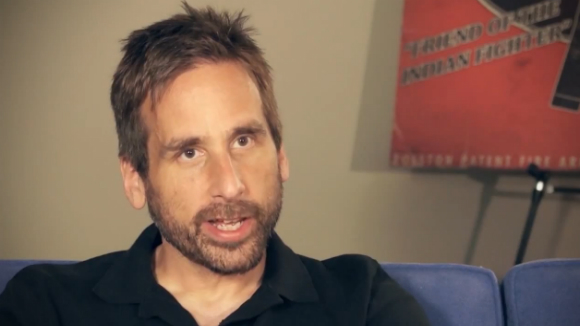Interview: BioShock's Ken Levine
Ken talks games and gadgetry

Sign up for breaking news, reviews, opinion, top tech deals, and more.
You are now subscribed
Your newsletter sign-up was successful
Things are heating up ahead of the release of BioShock Infinite - a game so long coming, we won't believe it's here until we can actually smell the disk box.
We sat down for a chat with the brain behind the BioShock franchise, Ken Levine, to ask him about what went into Infinite - and what gadgets he's playing with these days.
BioShock has a huge fanbase - and a pretty vocal one. How much feedback did you take on board for Infinite, and how did you balance it against what you yourself wanted?
Ken Levine: People will always tell you what they don't like. However, you never want to look to the audience to tell you what to do because that's not their job, and they're missing a lot of context, so that's what we use focus testing mostly for. And to some degree we look at previous games and comments on previous games as a sort of focus testing.
But yes, there's a very vocal group of relatively hardcore people, and they're our key audience. You have to keep their support, but generally they actually want something they're familiar with. When they're shocked with something too unfamiliar they get very turned off, so you have to keep that balance with something that they feel some connection to but is also quite different.
That was certainly some of the thinking behind Infinite. We could have done another Rapture game and we could have done that relatively easily in a year and a half, but we thought we wouldn't bring the same energy we brought to the first one because we didn't have a fresher story to tell.
BioShock Infinite is coming out towards the end of the current console cycle. Was there ever a consideration to wait for the next gen and see if you could push the boundaries further?
Sign up for breaking news, reviews, opinion, top tech deals, and more.
KL: Well if you're going to do something next gen, you really want to be able to start and say. 'What are the capabilities of this platform? Let's exploit them.' If you compare the first BioShock to Infinite on a technological basis - the scale of the environments, the lighting models, the moving environments, the number of enemies you fight, the fact you now have Elizabeth with you - all those things are huge demands on the technology, but which, in the case of the PS3 and the Xbox, are literally the same pieces of technology. But that shows what knowledge of a platform can do over time for the development team and the benefits it can give them.
[BioShock and Infinite] almost feel like different generations, but that new generation is from knowledge, not from any new hardware involved. So any time you do start a new generation, you almost take a little step back because you have very limited knowledge. Look at games like God of War at the end of the PS2 cycle and then look at some of the early PS3 games. They don't hold up as well as the likes of God of War because they didn't know how to push the platforms.
When you spoke at the Bafta Q&A event this week, you mentioned that Elizabeth nearly didn't happen in Infinite because at first people weren't on board, much like people were first against the Big Daddies when making BioShock. Could you now imagine the game without her?
KL: No way. You could pull the shark from Jaws, but without a shark you don't have much of a movie. And so I always felt the same with the Big Daddies in the first game - if you didn't have those things, there was no game. And when people were saying we should cut them I was ready to say, 'Then why are we doing this game? There's no reason'. It would be an incomplete game. There would be a giant hole. Now imagine the first BioShock without the Big Daddy or Little Sister - it just wouldn't be the same game.

Hugh Langley is the ex-News Editor of TechRadar. He had written for many magazines and websites including Business Insider, The Telegraph, IGN, Gizmodo, Entrepreneur Magazine, WIRED (UK), TrustedReviews, Business Insider Australia, Business Insider India, Business Insider Singapore, Wareable, The Ambient and more.
Hugh is now a correspondent at Business Insider covering Google and Alphabet, and has the unfortunate distinction of accidentally linking the TechRadar homepage to a rival publication.